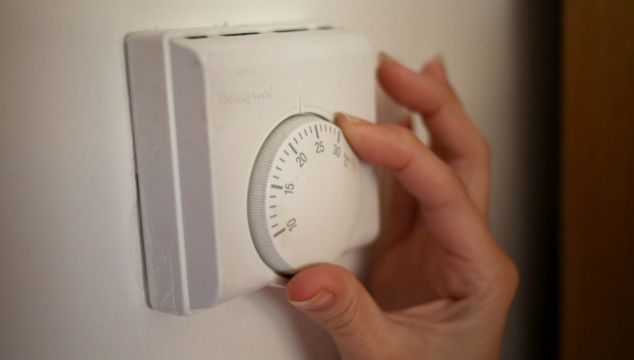The Sustainable Energy Authority of Ireland (SEAI) has stressed that urgent action is needed to tackle the "excessive dependence on fossil fuels for heating" as emissions continue to rise.
The call for action comes following the publication of the National Heat Study which suggests options for reaching net-zero emissions from the heating sector by 2050.
According to the study, heat related carbon dioxide emissions in Ireland are rising, having represented 38 per cent of energy related emissions in 2020.
Furthermore, figures show that heating demand has been rising steadily since 2014. This has been due to economic growth.
In order for the State to meet its aim of reducing emissions by 51 per cent by 2030, there needs to be a significant ramping up of measures in the heating sector.
The study suggests that there is an essential role for key technologies in reaching net-zero emissions.
The situation which would see the lowest cumulative CO2 emissions would include a major uptake of heat pumps, according to the study. This would be particularly suited for oil fuelled and detached homes.
District heating was another technology which was cited as having significant potential.
District heating systems create a local-level heating grid which delivers low-carbon heat to residential, commercial, and public buildings supplied by waste heat from industry or electricity generation, geothermal sources or heat pumps.
The National Heat Study has been published today, stressing urgency of immediate action to deliver climate targets. The study shows excessive dependence on fossil fuels for heating as emissions continue to rise. Learn more and download the report: https://t.co/kIs7wqGI0q pic.twitter.com/BpMNNN5MIW
Advertisement— SEAI (@SEAI_ie) February 22, 2022
Commenting on the study, William Walsh, CEO at Sustainable Energy Authority of Ireland said: “Almost one quarter of our greenhouse gas emissions are heat related.

“So, it’s one quarter of the problem we need to solve, and it’s the one where we’ve achieved least to date.
“The recent national retrofit announcement is a massive turning point for Government ambition and priorities in the sector.
“This National Heat Study will support the continued evolution of Ireland’s policy incentives for homes and business to focus on replacing fossil fuels in heating homes and industry.
“This will drive more immediate and significant reductions in CO2 emissions. It means focussing building upgrades on meeting the optimal level of building fabric performance to support an early switch away from fossil fuel heating sources and move to low carbon, sustainable technologies.”







